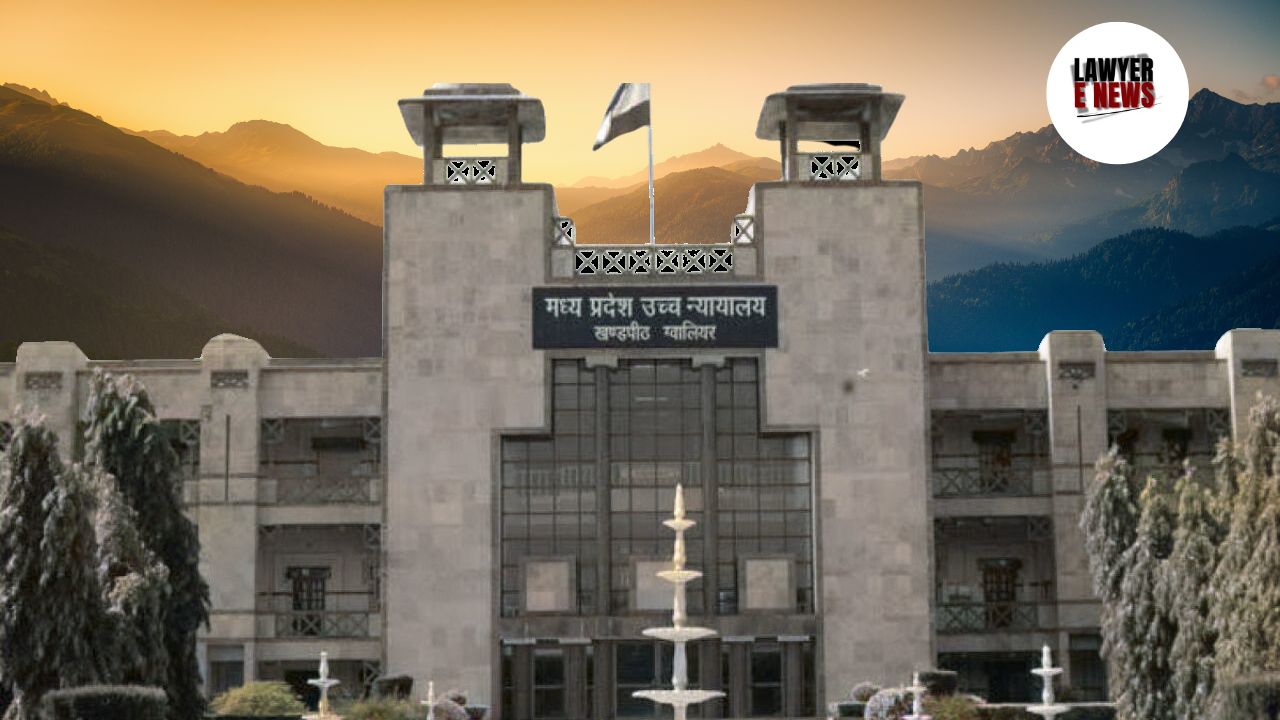-
by Admin
15 February 2026 5:01 PM



A destitute wife cannot be denied maintenance merely because the husband has obtained an ex-parte decree under Section 9 of the Hindu Marriage Act. The wife's justifiable reasons for living separately must be independently assessed - Madhya Pradesh High Court dismissed a criminal revision petition challenging a Family Court order granting maintenance under Section 125 of the Code of Criminal Procedure (CrPC). The Court upheld the award of ₹6,000 per month to the wife and ₹5,000 per month to the minor daughter, rejecting the petitioner-husband’s claim that an ex-parte decree under Section 9 of the Hindu Marriage Act (HMA) precluded the wife’s entitlement to maintenance.
The Court clarified that an ex-parte decree for restitution of conjugal rights does not automatically disentitle the wife from claiming maintenance if she has valid reasons for living separately, including allegations of cruelty or harassment.
The Court emphasized that the decree under Section 9 HMA does not bar the wife's right to maintenance under Section 125 CrPC. The reasons for her separation must be assessed independently.
“A decree for restitution of conjugal rights, especially an ex-parte one, does not preclude the wife from claiming maintenance if she has sufficient grounds for living separately.”
The Court noted that the respondent-wife alleged harassment, including forced abortion and mistreatment, which justified her decision to live separately.
The Court observed that while the petitioner-husband obtained an ex-parte decree for restitution of conjugal rights, his conduct toward the wife was material in assessing her entitlement to maintenance.
“Even with a decree under Section 9 of HMA, the husband's behavior and treatment of his wife are critical factors. If the wife faces harassment, she has every right to live separately and claim maintenance.”
The Court relied on Babita v. Munna Lal (Delhi High Court) and Avedesh Kumar Tiwari v. Chitra Tiwari (MP High Court) to underscore that maintenance claims cannot be summarily dismissed based on ex-parte decrees.
The Court rejected the petitioner-husband’s claim of unemployment, observing that he failed to provide evidence of his financial incapacity. Meanwhile, the wife demonstrated her inability to maintain herself and her daughter.
“A wife is entitled to maintain a standard of living equivalent to her husband's financial status. Maintenance should be reasonable, ensuring neither extravagance nor penury.”
The Court relied on the Supreme Court’s judgment in Rajnesh v. Neha (2021), which held that maintenance must reflect the financial capacity of the husband while ensuring reasonable comfort for the wife and children.
The Court upheld the Family Court’s award of ₹6,000 per month for the wife and ₹5,000 per month for the child. It found the amount to be reasonable given the husband’s financial capacity and the socio-economic needs of the wife and daughter.
“The maintenance amount ensures a balance, neither being oppressive for the husband nor inadequate for the wife and child’s basic needs.”
The petitioner-husband, Deepak Neelkanth, and respondent-wife, Priyanka Neelkanth, were married in 2010. They have an 11-year-old daughter. The wife left the matrimonial home in 2018, alleging harassment by her husband and in-laws.
The husband obtained an ex-parte decree under Section 9 HMA from the Family Court in 2022, directing the wife to return to the matrimonial home.
The wife filed an application under Section 125 CrPC, citing financial dependence and harassment. The Family Court awarded maintenance, which the husband challenged in the High Court.
The Court held that a decree for restitution of conjugal rights does not create an automatic bar to maintenance, particularly when the decree is ex-parte. The Court explained that the wife's reasons for separation must be examined on their merits.
It cited the Delhi High Court in Babita v. Munna Lal (2022): “An ex-parte decree for restitution of conjugal rights is not an absolute bar to maintenance under Section 125 CrPC. If evidence shows that the wife has justifiable reasons to live separately, she cannot be denied maintenance.”
The Court considered the wife's allegations of mistreatment and harassment, including forced abortion in 2015. It held that these allegations provided sufficient justification for her decision to live separately.
The Court stated: “If the conduct of the husband or his family forces the wife to live separately, she has every right to claim maintenance.”
The Court observed that the husband failed to substantiate his claim of unemployment or financial incapacity. On the other hand, the wife demonstrated her inability to maintain herself and her daughter.
Quoting Rajnesh v. Neha (2021), the Court noted: “The test for determining maintenance depends on the husband’s financial status and the standard of living the wife was accustomed to in her matrimonial home.”
The Court upheld the maintenance amount of ₹11,000 per month (₹6,000 for the wife and ₹5,000 for the daughter), noting that it struck a balance between the husband's financial capacity and the wife and child’s basic needs.
The Madhya Pradesh High Court dismissed the petitioner-husband’s challenge to the maintenance order and upheld the Family Court’s decision.
The Court held: “A destitute wife cannot be denied maintenance merely because the husband obtained an ex-parte decree under Section 9 of HMA. Maintenance ensures socio-economic balance and must be reasonable.”
Revision Dismissed: The criminal revision was dismissed, and the Family Court's order granting maintenance was affirmed.
Ex-Parte Decree’s Limited Relevance: The Court clarified that an ex-parte decree for restitution of conjugal rights does not automatically disentitle the wife from maintenance if there are valid reasons for living separately.
Pending Applications: All pending applications in the case were disposed of.Significance of the Judgment
This judgment reaffirms the principle that an ex-parte decree under Section 9 HMA does not extinguish a wife’s entitlement to maintenance under Section 125 CrPC. It underscores the judiciary’s focus on substantive justice, emphasizing the husband's financial responsibility and the wife's right to live with dignity.
Date of Decision : December 12, 2024
